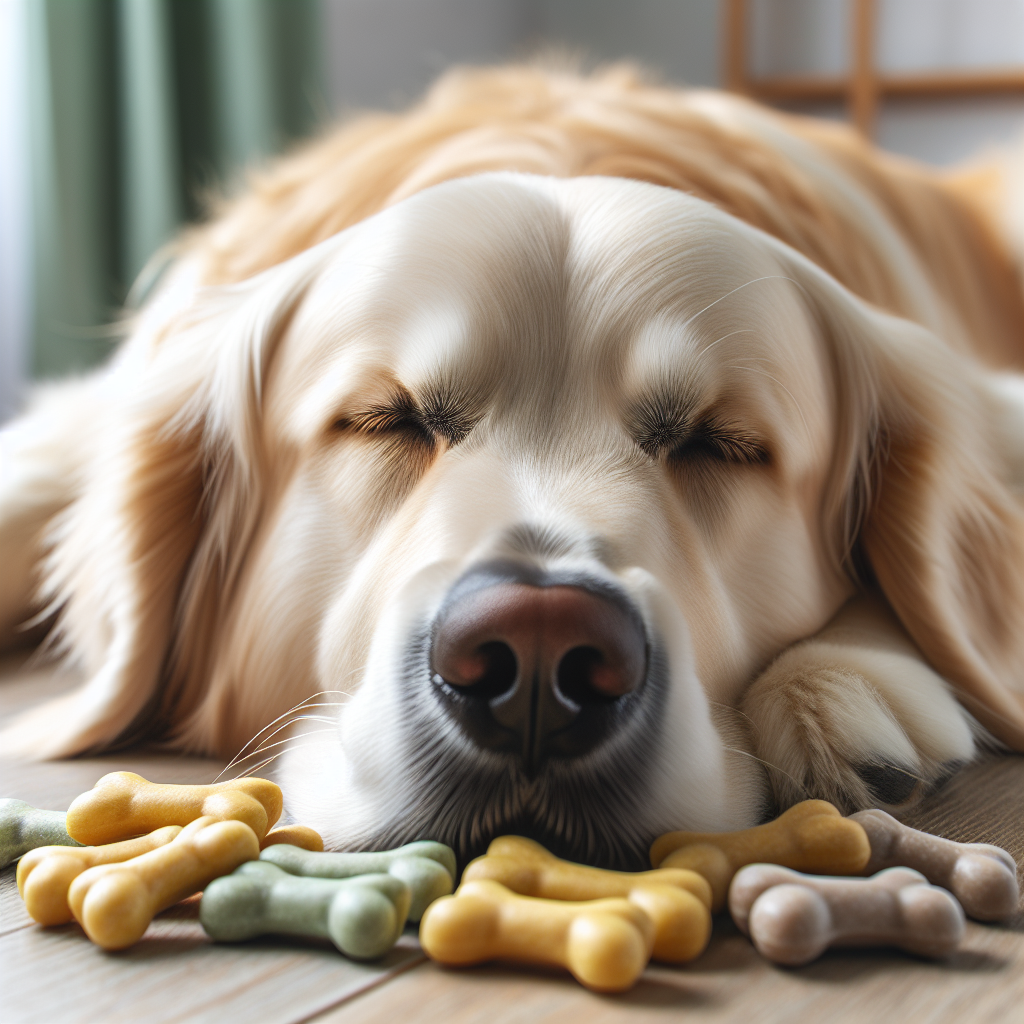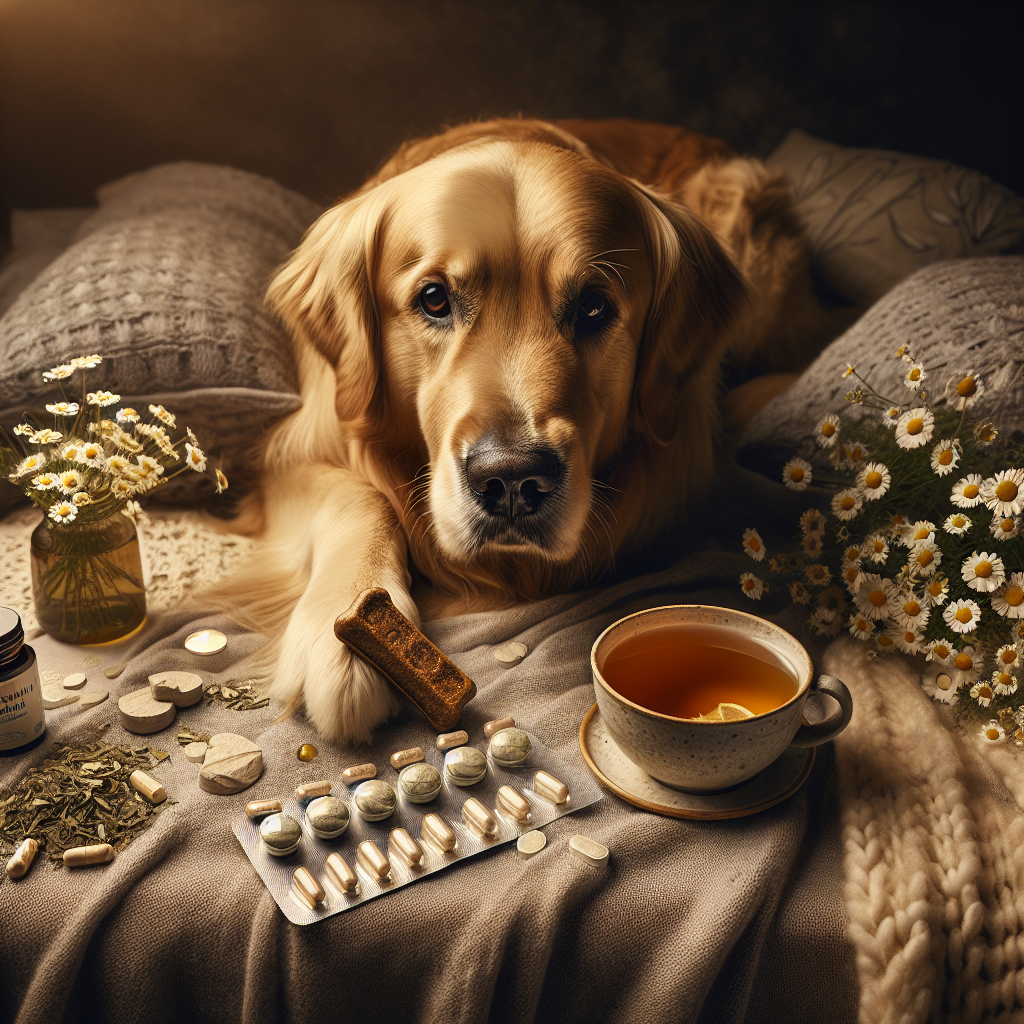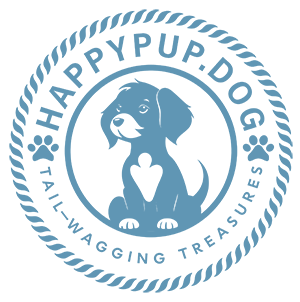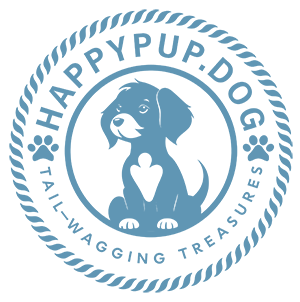Overdose Alert: Calming Chews for Dogs Safety Guide!
Calming chews for dogs have become popular among pet owners seeking to soothe their furry companions' anxiety or stress. These chews often contain natural ingredients such as chamomile, L-theanine, and melatonin, which are known for their mild sedative properties. However, as with any supplement, there is a potential risk of overdose if not administered correctly. It is crucial to understand the correct dosage and the signs of an overdose to ensure your dog's safety.
When introduced correctly, calming chews can be a beneficial addition to your dog's routine, particularly during high-stress events like thunderstorms, fireworks, or visits to the vet. It's imperative to follow the manufacturer's guidelines regarding the appropriate amount for your dog's size and weight to prevent any adverse effects. Remember, every dog is unique, and what works for one may not suit another; always monitor your dog's reaction to new supplements.
Stay vigilant and informed about the products you provide to your pet. In the upcoming sections, we will delve into the potential risks associated with calming chews for dogs, how to identify symptoms of an overdose, and the steps you should take if you suspect your dog has ingested too many calming chews. Knowledge and caution are key when introducing any new element to your dog's diet or healthcare regimen.
Identifying Overdose Symptoms in Dogs

Recognizing the symptoms of an overdose of calming chews in dogs is essential for any pet owner. While these products are generally safe when used as directed, an overdose can lead to concerning health issues that require immediate attention. Some of the most common signs of an overdose include excessive drowsiness, lethargy, coordination problems, or digestive upset, such as diarrhea or vomiting.
In more severe cases, your dog may exhibit more alarming signs such as tremors, an abnormally slow heart rate, or respiratory depression. If you observe any of these symptoms, it's critical to act swiftly. Contact your veterinarian or an emergency pet poison helpline as soon as possible. Timely intervention can make a significant difference in your dog's recovery process and overall health.
Prevention is equally important; always store calming chews out of reach of pets and children to avoid accidental ingestion. By being observant and cautious, you can help keep your dog safe from the risks associated with an overdose of calming chews. In the following section, we will explore how to determine the correct dosage of calming chews to further prevent any potential overdose scenarios.
The Risks of Overdosing on Calming Treats

Calming chews for dogs can be a helpful aid in managing anxiety and stress-related behaviors. However, when administered in excess, these treats can pose serious risks to your dog's health. Overdosing on calming chews can lead to a range of dangers, varying from mild to severe, depending on the amount ingested and the size of your pet.
Mild cases of overdose may result in temporary discomfort, such as gastrointestinal issues like diarrhea or vomiting. While these symptoms can be distressing, they are often not life-threatening. However, pet owners must be vigilant as prolonged or severe gastrointestinal distress can lead to dehydration and require medical intervention.
More concerning are the potential risks of severe overdose, which include extreme lethargy, difficulty walking, or even collapse. In the worst-case scenario, calming chews containing certain ingredients, like xylitol, can cause a sudden drop in blood sugar, seizures, liver failure, or even death if not treated promptly.
It is crucial to understand the active ingredients in any calming chews you provide to your dog and to follow dosing instructions carefully. If you suspect your dog has ingested too many calming chews, immediate veterinary care is imperative. In the next section, we will discuss appropriate dosing and how to ensure you are providing a safe amount of calming treats to your dog.
Preventing Overdose: Dosage Guidelines for Calming Chews

To ensure the safety and well-being of your canine companion, it's imperative to adhere to proper dosage guidelines when administering calming chews for dogs. The correct dosage often depends on your dog's size, weight, and the specific brand or type of chew. It's essential to read the product label carefully and consult with your veterinarian if you have any doubts or if your dog has pre-existing health conditions.
Most calming chews will provide a recommended dosage based on the dog's weight. For instance, a small dog may only require half a chew, while a larger dog might need two or more. Never exceed the recommended dosage, and avoid the temptation to give an extra chew "just in case"—more is not necessarily better and can lead to the risks outlined in the previous section.
Additionally, consider your dog's existing diet and any other supplements or medications they may be taking. Interactions between different products can lead to unintended side effects or increase the risk of overdose. If your dog is already taking a medication for anxiety or stress, combining it with calming chews can amplify the effects and potentially cause harm.
Remember that while calming chews can be a valuable tool in managing your dog's anxiety, they should be used as part of a broader approach that includes training, behavior modification, and, where appropriate, professional advice. By following the manufacturer's guidelines and seeking guidance from your vet, you can use calming chews safely and effectively to help your dog find peace and comfort.
What to Do in Case of a Calming Chews Overdose
If you suspect that your dog has ingested more calming chews than the recommended dosage, it is crucial to act quickly. First and foremost, remain calm and assess the situation. Check the packaging for any specific instructions regarding overdose and note the amount your dog has consumed. Symptoms of an overdose can include lethargy, excessive sleepiness, difficulty walking, or abnormal behavior.
Contact your veterinarian or an emergency animal hospital immediately. They will provide you with specific instructions based on the ingredients in the calming chews and the amount ingested. Be prepared to inform them of your dog's size, any symptoms observed, and when the overdose occurred. The treatment may range from inducing vomiting to administering activated charcoal, which can prevent absorption of the chews into your dog's system.
In some cases, you may be directed to bring your dog in for an examination. It's essential to bring the calming chew packaging with you, as it contains critical information that will aid the veterinary team in treating your dog. Depending on the severity of the overdose, your dog may require hospitalization for monitoring and supportive care.
It's important to note that time is of the essence in these situations. Do not wait for symptoms to appear or worsen before seeking professional assistance. With prompt and appropriate action, most dogs will recover from an overdose of calming chews, but the key is immediate and informed action.
Choosing the Right Calming Chews for Your Dog

When selecting calming chews for your dog, it's important to consider several factors to ensure the safety and effectiveness of the product. Look for chews that are specifically formulated for dogs and match your dog's size and weight. It's essential to choose a product with high-quality, natural ingredients that are proven to be safe for canine consumption.
Ingredients like chamomile, valerian root, and L-Theanine are commonly found in calming chews and have a track record of safely reducing anxiety in dogs. Additionally, consult with your veterinarian to determine if calming chews are appropriate for your dog's specific health needs and to confirm the correct dosage.
Always read and follow the dosage instructions on the product label, and start with the lowest dose to see how your dog reacts. Monitoring your dog after administering calming chews is crucial to ensure they're not experiencing any adverse effects.
At Happypup.dog, we offer a carefully curated selection of high-quality calming chews designed to provide your furry friend with the relief they need. Treat your furry friend to the joy they deserve with our range of delicious and nutritious dog treats. Discover the perfect calming solution for your pup today!






